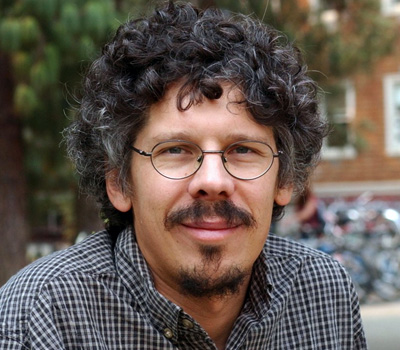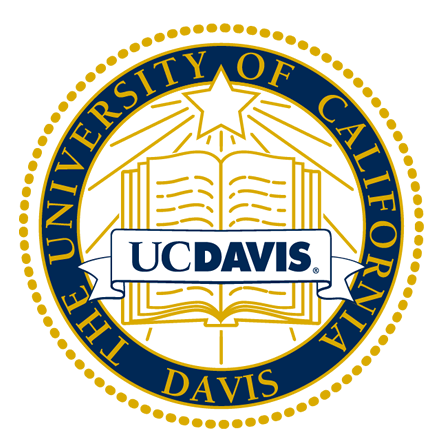Supporting psychological well-being through music-evoked remembering
Most of us have a song that triggers a specific memory, whether it is a first dance or a song from our youth. Music allows people to connect with people, places, and times from their past and therefore, it is of interest to researchers because of its universality and important connection to memory. Dr. Petr Janata, of the University of California, Davis is interested in the intersection between psychology, neuroscience, and music. His research aims to understand the many ways in which music impacts people including music-evoked remembering, making music, and the cognitive psychology behind our ability to interact with music. Therefore, his creative research will help identify why people find music meaningful, why it is so important for humans and our brains, and help to explain why people with memory impairment remain responsive to music.
Current research includes:
-
Music-Evoked Memory: Music-evoked remembering is commonly cited as the strongest experience that people have with music and is a strong trigger of nostalgia. At a more fundamental level, Dr. Janata's research is expanding laboratory research on autobiographical memory. His approach is providing some critical tests of long-standing theories about how memory works in the brain and helping offer explanations why some people with profound memory loss, like people with Alzheimer's disease, still remain responsive to music from their past.
-
Neurobiography Project: Dr. Janata and his team are trying to map the content of memories from across a person's life in his or her brain with unprecedented detail. The ability to map such content will be useful in helping scientists understand how personal memories are organized and furthermore, how to treat diseases in which memory is impaired.
-
The Groove Project: Dr. Janata's "Groove Project" hopes to understand what goes on in our brains when we feel like we are one with the music or the people with whom we are making music. The current focus in this project is understanding how the brain's attention, action, and emotion systems interact. Dr. Janata is also examining the idea that music provides a playground for our brain's attentional system, and what makes listening to music pleasing is the ability to play along with it in our minds. He and his team are performing various experiments that look at how this interaction works.
-
Emotional Connotations: Dr. Janata examines the emotional and semantic connotations of isolated musical sounds. For example, what makes a note played one way on a violin sound sad and played another way sound happy?
- Linking Music to Brain Function: Much of Dr. Janata's work has a computational component to it, meaning that, starting with the actual audio signal that participants hear, Dr. Janata and his team try to extract psychologically relevant representations that he then uses in the analyses of the physiological signals that he records.

Bio
Dr. Petr Janata is a cognitive neuroscientist studying the psychology of music. He received his Ph.D. from the University of Oregon in 1996, where he performed electrophysiological studies of auditory object representations in the barn owl brain and musical image formation in the human brain. As a postdoctoral fellow at the University of Chicago from 1997-1999, he used electrophysiological and computational approaches to investigate song-perception and song-learning in songbirds. From 2000-2004 he was on the research faculty at Dartmouth College where he resumed his long-standing line of music perception research, initiated as an undergraduate at Reed College and continued as a Fulbright Scholar in Vienna, Austria. Since 2004, he has been a faculty member of the Center for Mind and Brain, and the Department of Psychology, at UC Davis, where he continues to use music and an array of behavioral, computational, and neuroimaging tools as a means of understanding how the brain organizes complex human behaviors.
Dr. Janata has been fascinated by music and human psychology since high school. Taking piano lessons through high school, he learned enough music theory to appreciate that music has a beautiful underlying structure to it. When he took a cognitive psychology class in college and learned how the brain represents the world around us, he realized that music, with all of its rules and organization, affords an excellent way of probing how the mind and brain work. He became increasingly interested in understanding how the human brain enables strong experiences we have with music, such as music-evoked remembering, or the feeling of being "in the groove" when we make music with others. After he started studying music-evoked remembering and associated emotions like nostalgia, Dr. Janata came to appreciate that he had an opportunity to help society at large, for example people with Alzheimer's disease and their families and caregivers. Aside from research, in his free time, Dr. Janata enjoys playing keyboards in a local folk rock band, and skiing snowy slopes from Lake Tahoe to Austria, and sand dunes from Michigan to the Middle East.
Website: http://atonal.ucdavis.edu
In the News
Press Release
Publications
Videos
Awards
Fulbright Fellow, Vienna, Austria, 1990-1991
Music Has Power Award, Institute of Music and Neurological Function, 2010
Guggenheim Fellow, 2010
Fulbright Fellow, Prague, Czech Republic, 2010-2011
Patents
U.S. Patent No. 5,667,470: "Apparatus and method for using listener feedback to determine the nature of sound stimuli presented to the listener."
(expired)
U.C. Case No.: UC-2012-540-1. "Sonification systems and methods for auditory display of heart rate and oxygen saturation changes in clinical settings."
Filed provisional
U.C. Case No.: UC-2013-945-0. "Music-evoked autobiographical memory (MEAM) Central: A Novel Social Website."
Filed provisional


